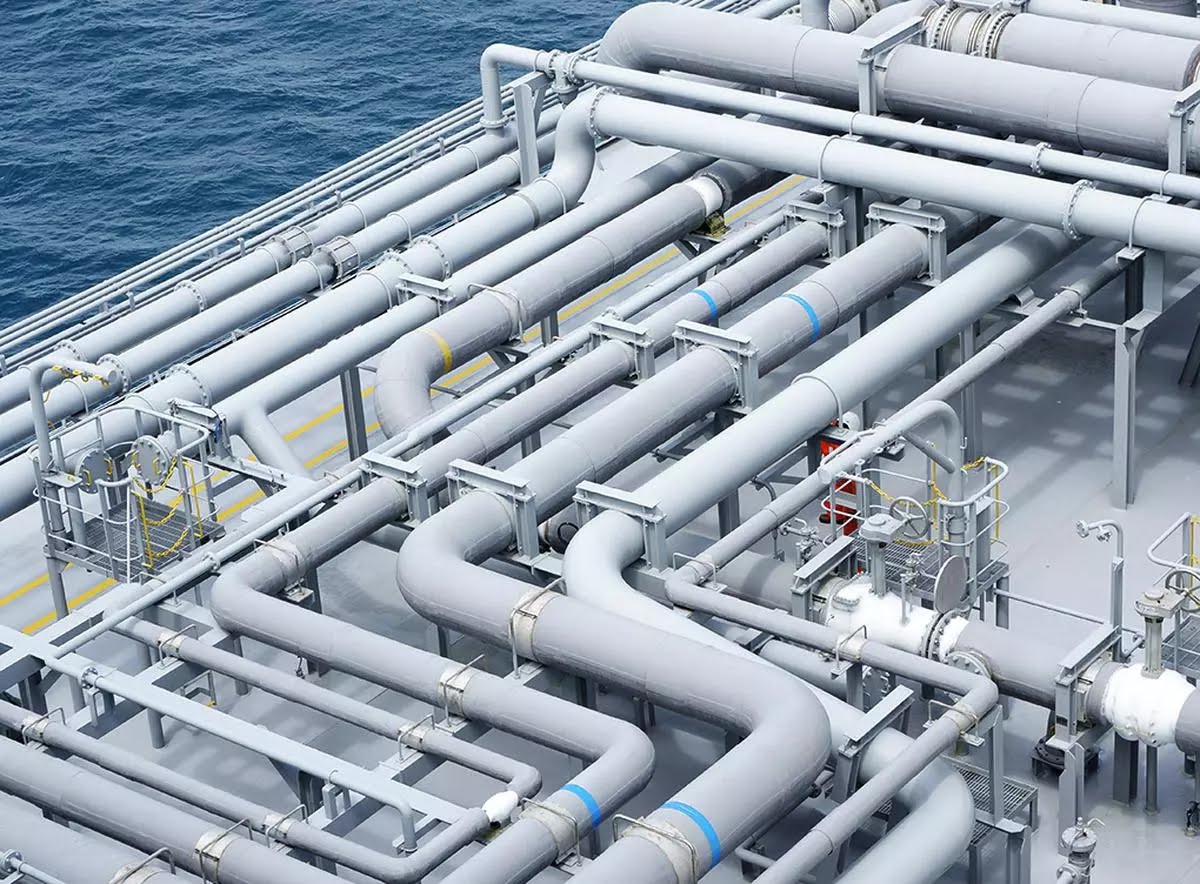The Nigerian government has begun talks with Libya on a gas pipeline project connecting the two countries.
Nigeria’s Minister of Petroleum (Gas), Ekperikpe Ekpo, revealed this during a meeting with Libya’s Minister of Oil, Dr. Khalifa AbduAlsadik, at the Gastech Exhibition and Conference 2024 in Houston, USA.
Ekpo said the potential gas pipeline would begin from Nigeria to Libya.
According to him, this strategic meeting aims to strengthen energy cooperation between the two nations.
Taking to his X handle, Ekpo said: “Minister of State Petroleum Resources (Gas), Rt. Hon. Ekperikpe Ekpo, meets with Libya’s Minister of Oil, Dr. Khalifa AbduAlsadik, on the sidelines of the Gastech Exhibition and Conference 2024 holding in Houston, USA, to discuss the possibility of developing a regional gas pipeline from Nigeria to Libya.
“This strategic meeting aims to strengthen energy cooperation between the two nations.
“On the Nigerian delegation were Olalekan Ogunleye, EVP Gas NNPC Ltd., Maher Giundi, International Business Advisor to the GCEO of NNPC, and Odiong Ekanem, Technical Adviser to Minister of State Petroleum Resources (Gas), while the Libyan team had Dr. Basteet Al Ashab, Khalid Jatbi, and Yousef Al Shatwi.”
Recall that the discussion surrounding the construction of a regional pipeline between Nigeria and Libya has been ongoing for some time, as both nations are key oil and gas producers in Africa.
In 2022, the then Libya’s Oil Minister, Mohamed Aoun, proposed that the ongoing $13 billion Nigeria-Morocco Gas Pipeline (NMGP) from Nigeria should pass through Libya instead of Algeria, another resource-rich African country.
The cross-border pipeline is expected to transport gas from Nigeria to other African nations and the European market upon completion.
The pipeline spans 5,600 km and will traverse 13 African countries: Nigeria, Benin Republic, Togo, Ghana, Cote D’Ivoire, Liberia, Sierra Leone, Guinea, Guinea-Bissau, Gambia, Senegal, Mauritania, and Morocco.
Nigeria’s transition from oil to gas in the oil and gas sector has been ongoing for decades, driven by the country’s vast gas reserves compared to its crude oil reserves.
This shift towards gas was further reinforced by President Tinubu through the signing of new executive orders aimed at boosting the gas industry.
President Tinubu inaugurated three gas plants in Delta and Imo states, aiming to boost Nigeria’s gas production by at least 25%. Earlier, on June 16, 2023, the NNPC signed four memoranda of understanding (MoUs) with Morocco, Côte d’Ivoire, Liberia, Benin, and Guinea as part of the Nigeria-Morocco gas pipeline project.

